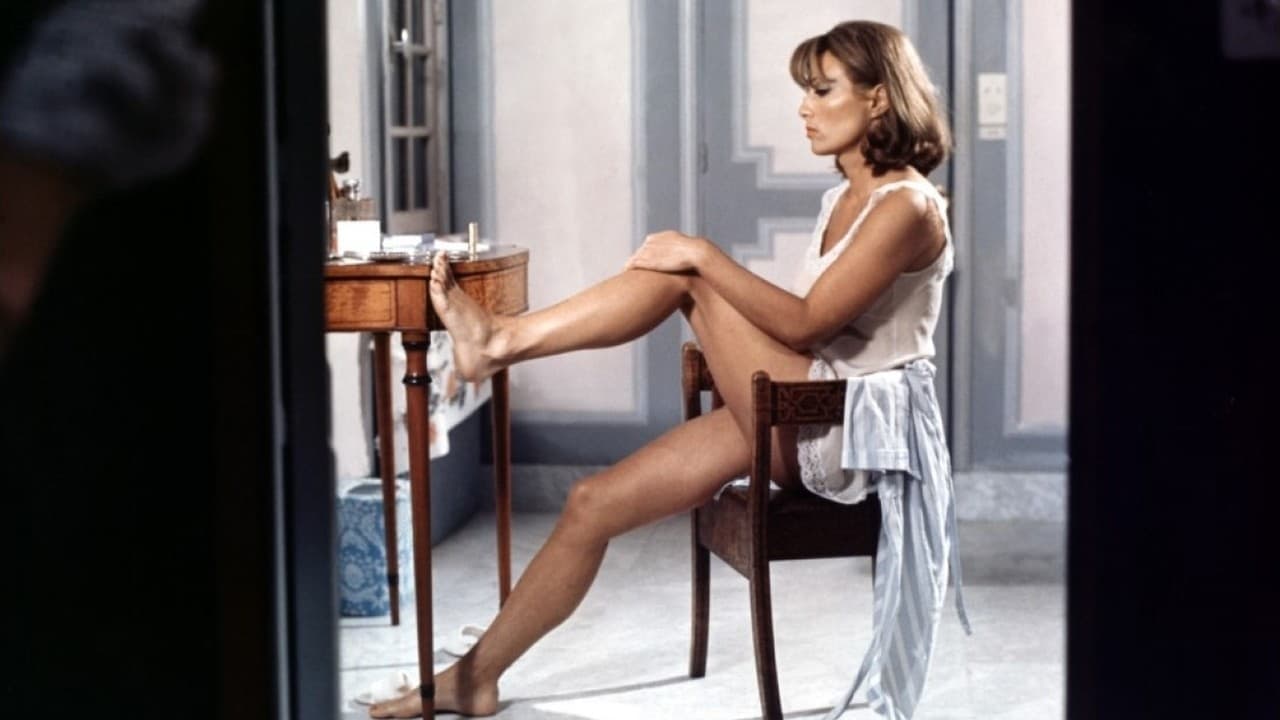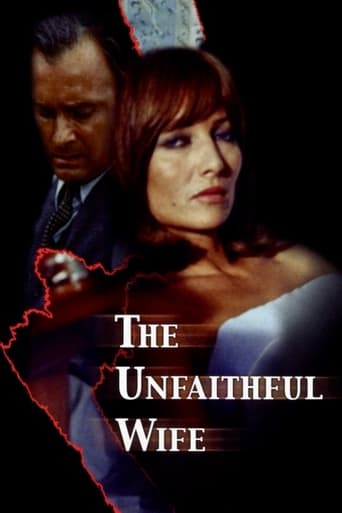

"La Femme Infidele" (aka "The Unfaithful Wife") is a psychological thriller that charts the course of events that follow after the passion is lost from an otherwise happy eleven-year-old marriage. Suspicion, betrayal and jealousy create a cocktail of emotions which eventually become totally uncontrollable and lead to a violent incident that changes the couple's lives forever. The fact that their feelings are constrained within certain parameters (which are imposed on them by their middle-class sensibilities), creates the powerful tension which is such a strong and consistent feature of this movie.Charles Desvallees (Michel Bouquet) is a wealthy businessman who lives in a beautiful château near Versailles with his wife Helene (Stephane Audran) and their son Michel (Stephane Di Napoli). Outwardly, they appear to be a happy family but some of Helene's actions lead Charles to suspect that she may be having an affair and so he employs a private detective to investigate. After the detective reports that Helene is involved with a divorced writer called Victor Pegala (Maurice Ronet), Charles decides to visit his wife's lover at his apartment. The two men initially converse in a very calm and friendly manner but as the evidence of his wife's infidelity becomes increasingly vivid, Charles' emotions overwhelm him and he strikes Pegala with a heavy ornament and kills him.Following the incident at Pegala's apartment, Charles and Helene maintain their appearance of normality but there's also some evidence that they're beginning to unravel. The developments that follow unfold in a style which is both surprising and fascinating, not least because of what they reaffirm about the couple's relationship.One of the pleasures of watching this movie is seeing the way in which so much of what's going on happens without ever being spoken about. Helene never actually mentions her frustration, her adultery or the fact that she finds evidence of Charles' crime and Charles never talks about his suspicions, his crime or the depth of the pain that he obviously experiences as a result of being betrayed by his wife. Similarly, all the emotional turmoil is routinely masked by an air of tranquillity because maintaining a veneer of normality is so important to people of their social standing.In a film that's as subtle and cerebral as "La Femme Infidele" the demands on the actors are considerable and the fact that Bouquet and Audran convey so much so successfully without being able to talk about their thoughts and feelings emphasises just how talented they are. A real high point comes in a scene close to the end where Stephane Audran's subtle smile very economically speaks volumes about what she's thinking and feeling at that time. This is just one example of the top class acting that contributes so much to the success of this movie which really needs to be seen more than once in order to fully appreciate it.
... View MoreClaude Chabrol is known affectionately as 'the French Hitchcock'. And while I can see why he is labelled as such, it isn't a terribly accurate description. His films are ostensibly thrillers but the difference between Chabrol and Hitchcock is that the former is only superficially interested in suspense. His films effectively use the thriller framework in order to explore issues of human psychology, morality and sexuality. While pivotal, the crimes depicted in his films are almost incidental, they are merely catalysts that lead to the human dramas that truly interest him. Its the psychological aftermath of crime and the complex human emotions that it unleashes that drives his films.La Femme Infidèle is no different in this regard. Its about a love triangle that ends in the murder of the secret lover. The married couple's relationship actually strengthens on account of this homicide. This atypical approach to human relationships is common in Chabrol's universe. I wouldn't necessarily say that characters in his movies act in particularly realistic ways. They always seem to be somewhat emotionally detached. In this case it is no different. The married couple seem to navigate through these moments of heightened tension with little more than a Gallic shrug. But this is the style of the director and his familiar ensemble of actors. Once again his muse Stéphane Audran is radiant as the unhappy wife; while Michel Bouquet impresses as her husband. Visually the film is typical in its low-key look, which fits the psychological mood. Its pastel colours reflect the detached feeling too.Its one of the directors best films. Everyone is on the top of their game and the deceptively simple plot line is never less than engaging. Like most other Chabrol, there is a lot going on under the surface here. It ends on a very ambiguous note. One than can be interpreted in different ways. The final camera pan is strangely compelling and mysterious. It makes you want to watch the movie again.
... View MoreAlice Liddel's (what a wonderful name!!) comment is arguable but, I think, off the mark. Many different things are going on in this movie, and one of the reasons Chabrol is admired is his skill in creating and using ambiguity, which lures the viewer in, requires him to make his own interpretation, and thus involves him in the movie much more deeply than would happen with a clear, obvious story line.To me what happens between the husband and wife is, they both have become disinterested with each other, sexually and emotionally; the wife takes a lover and, as she and we find out the purpose of this later, tests/taunts her husband: to reignite her love for him, he must prove that he loves her by doing something outrageous, difficult, dangerous, etc. She might or might not have had this in mind at a conscious level; it appears that she did not, which makes it even more interesting. He does it -- again, probably unintentionally -- and thus recreates his love and passion for her, and hers for him. By accident, they have successfully re-courted and re-conquered each other.This is what it's about, and would be regardless of the ending -- which Chabrol has (again)left ambiguous. Unfortunately, the crucial deed that saved the marriage turned out to be a murder, so there has to be at least a strong hint that they won't get away scot free.An irritatingly slow movie for quite a while, but ultimately very well done and rewarding for the viewer.
... View More'The Unfaithful Wife' is really about a faithful husband, who will kill to save his marriage. This kind of fidelity is a chilling exercise of power - the film's many point-of-view shots are mostly his - with adultery a rebellion, a bid for freedom that must be crushed. It's not enough that Charles uncovers his wife's lover, he must sit on the bed they make love on, drink the same drink...Chabrol's most perfect film, where character inertia is expressed in blatant artifice, both in the home and in 'nature'; where a materialist filming of materialists conceals an austere spirituality, embodied in those Fateful policemen. Like his namesake Bovary, Charles sleeps when his exquisitely beautiful wife offers herself to him. He deserves what he gets.
... View More